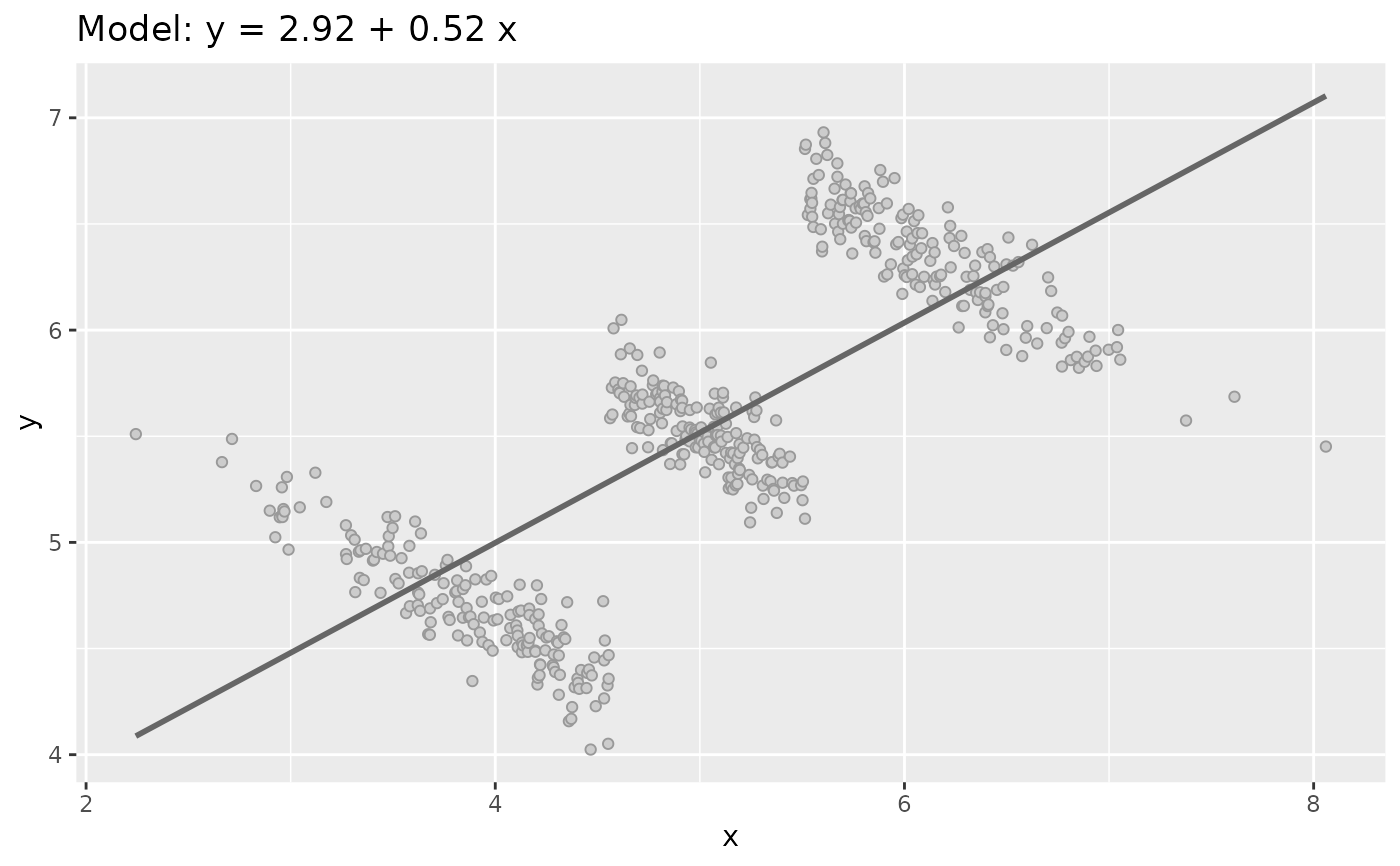Generate quasi Anscombe data sets Type 6: Simpson's Paradox
Source:R/quasianscombe.R
sim_quasianscombe_set_6.RdData sets Type 6 recreates the phenomenon of Simpon's paradox.
Arguments
- df
A data frame from
sim_quasianscombe_set_1(or similar).- groups
Number of groups to separate
xvalues.- b1_factor
A numeric value get the slope in each group from $beta_1$.
- residual_factor
Numeric value to multiply residual to modify their variance.
Details
This function will take x vector and separate groups groups to apply
a local model with a modified regression using the b1_factor factor.
The residual will be multiply with a value between 0 and 1 to make the visual effect greater.
Examples
df <- sim_quasianscombe_set_1()
dataset6 <- sim_quasianscombe_set_6(df)
dataset6
#> # A tibble: 500 × 2
#> x y
#> <dbl> <dbl>
#> 1 2.24 5.51
#> 2 2.66 5.38
#> 3 2.71 5.49
#> 4 2.83 5.27
#> 5 2.90 5.15
#> 6 2.92 5.02
#> 7 2.95 5.12
#> 8 2.96 5.26
#> 9 2.96 5.13
#> 10 2.96 5.12
#> # … with 490 more rows
plot(dataset6)
